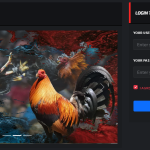Let’s face it – nobody likes to think about what happens after they’re gone. But planning for future finances is necessary if you want to ensure your loved ones are cared for. That’s where life insurance comes in, and one option that’s been gaining popularity is Indexed Universal Life Insurance (IUL). With so many insurance options out there, it can be tough to figure out which one is right for you.
In this article, we’ll break down what IUL is, why it’s essential, and how it can benefit you and your family.
Key Takeaways
- Indexed Universal Life Insurance (IUL) offers policyholders long-term financial protection and flexibility.
- IUL policies have a cash value component linked to a financial index, which offers the potential for a greater return on investment.
- Whole Life and IUL policies differ in premium payments and cash value growth, making it essential to consider your options carefully.
Definition of Indexed Universal Life Insurance
Indexed Universal Life Insurance (IUL) is a type of life insurance that provides long-term financial protection and flexibility for policyholders. Unlike traditional term life insurance, IUL is designed to last for as long as premiums are paid or until the policy matures.
One unique feature of IUL is that it has a cash value component, which is linked to a financial index, such as the S&P 500. This means that the policy’s cash value will increase or decrease based on the performance of the chosen index.
It’s important to note that the insurance company invests the funds in lower-risk assets like bonds and mortgages rather than directly in the highly volatile stock market.
The cash value component of IUL policies allows policyholders to take out policy loans or withdraw cash. Beneficiaries receive a death benefit upon the policyholder’s death, but any outstanding loans or withdrawals will reduce the final payout.
How Does IUL Work Exactly?
IUL allows policyholders to manage their premiums, accumulate cash value, and potentially increase their return on investment. The cash value and death benefit of IUL insurance are tied to an index you choose at the time of purchase. After taxes and administrative costs are deducted, the remaining portion of your premium goes toward your policy’s cash value.
The cash value component of an IUL policy is tied to the performance of an underlying index, but there are floors, caps, and participation rates that limit gains and protect against losses.
Floors guarantee a minimum rate of return, while caps limit your gains to a certain percentage, even if the index performs above that threshold. Participation rates determine how much of the index’s return gets credited to your account.
One of the best things about IUL policies is their flexibility. You can adjust your premiums and death benefit amounts if needed and even pay your premiums from your cash value account if it has enough funds. But be careful – if you don’t pay enough premiums, your policy could lapse, and you’ll lose all the money you put in and the death benefit.
It’s essential to monitor your IUL policy’s cash value and ensure it doesn’t fall too low. If it does, your insurer may issue a “premium call” and require additional funds to avoid a policy lapse.
Indexed VS. Whole Life Insurance: What is The Difference?
You have two main options for permanent life insurance: Indexed Universal Life (IUL) and Whole Life insurance policies. While both offer potential cash value and permanent coverage, they differ significantly in premium payments and cash value growth.
Whole Life policies require you to pay scheduled premiums, which can be more expensive than IUL premiums for the same coverage. On the other hand, IUL policies offer flexible premiums, allowing you to skip payments if you have sufficient cash value temporarily.
The cash value growth in a Whole Life policy is guaranteed, meaning you know exactly how much you’ll have available at any given time, assuming you make the scheduled premium payments. Dividend-paying policies may provide additional value, but dividends are never guaranteed, and some don’t offer dividends.
In contrast, the cash value growth in an IUL policy is based on the performance of a specified market index, subject to caps and floors. This means that if the index performs well, you could potentially accumulate a significant amount of cash value or even stop paying premiums for a while. However, if the index underperforms, you may need to pay higher premiums to keep the policy in force.
Conclusion
When it comes to permanent life insurance, IUL is a solid option for those seeking a policy with a cash component that earns interest and provides a death benefit.
However, As with any financial decision, it’s essential to weigh the advantages and disadvantages of IUL policies carefully and determine whether they align with your financial goals and risk tolerance.
Doing so can secure peace of mind for yourself and your loved ones and prepare for a brighter financial future.



